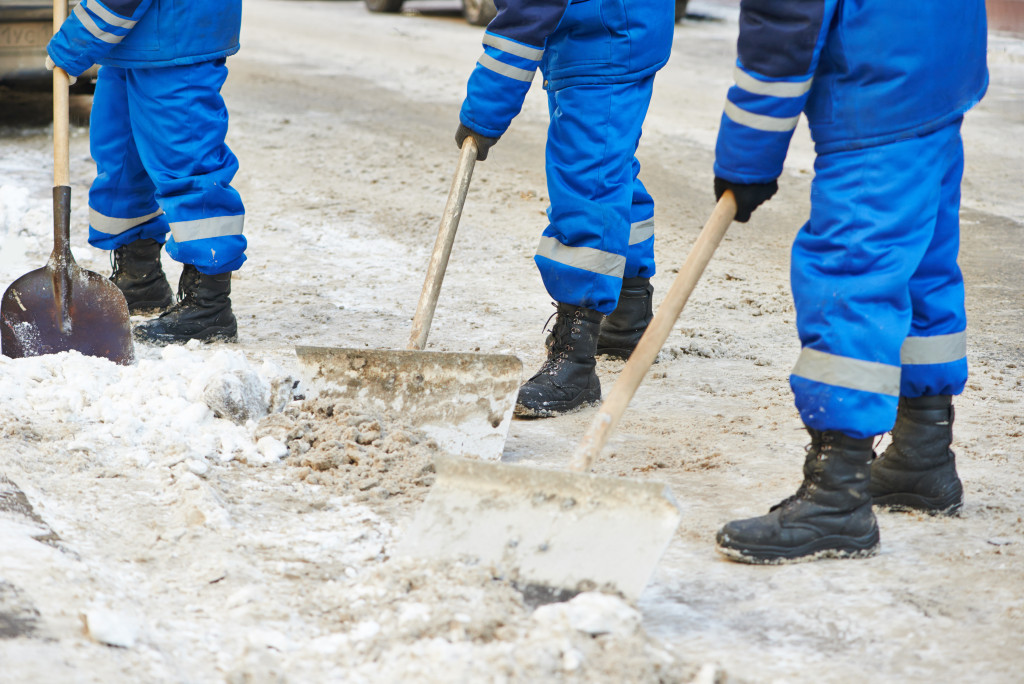- Develop a deep understanding of the community to provide effective support.
- Develop strong communication skills to communicate with people from all walks of life.
- Seek professional training for the necessary skills, tools, and resources to become an effective street worker.
- Build relationships with other professionals, such as social workers, police officers, healthcare providers, and community members.
- Be prepared to face challenges with empathy and compassion.
Starting as a street worker from scratch can be exciting and challenging. Whether you are passionate about helping those in need or want to make a difference in your community, becoming a street worker can be rewarding. However, like any job, it requires dedication, hard work, and proper training. This guide will discuss five tips to help you start as a street worker from scratch.
1. Develop a Deep Understanding of the Community
To become an effective street worker, you need to develop a deep understanding of the community you serve. Spend time walking around and getting to know the people in the area. Attend community events and engage with people from all walks of life. You can develop effective programs and strategies to help those in need by building relationships and understanding the community’s needs.
2. Develop Strong Communication Skills
Effective communication is essential for a street worker. You will need to communicate with people from all walks of life, including individuals experiencing homelessness, people struggling with addiction, and others. You must communicate in a way that is empathetic, respectful, and non-judgmental. Listening is also an essential aspect of effective communication. Listening to people’s stories and understanding their experiences is important to provide effective support.
3. Seek Out Professional Training

Professional training is essential for anyone looking to start as a street worker. A knowledgeable streetworks course can provide you with the necessary skills, tools, and resources to become an effective street worker. This type of course covers topics such as substance abuse counseling, understanding homelessness, mental health assessments and interventions, violence prevention strategies, and more. This knowledge and skillset gives you a leg up on other street workers.
4. Build Strong Relationships with Other Professionals
Working as a street worker often requires collaborating with other professionals. Building strong relationships with certain individuals can help you provide more comprehensive care to the community you serve. Additionally, these relationships can provide you with a support system and valuable resources to help you succeed.
Here are some professionals you need to build relationships with:
Social Workers
Working with social workers can enhance your street working efforts and provide you with valuable resources to better serve your clients. As a street worker, it’s important to understand the different services social workers offer and build relationships with them so that they can fill in where needed. It’s also beneficial to have collaborative conversations to gain insight into potential legal issues or challenges during client care.
Police Officers
Street workers often work closely with police officers while helping individuals. Consider having regular meetings or check-ins with law enforcement personnel to establish a strong relationship and maintain open communication between both professions. This will help ensure everyone does their part to keep communities safe while providing the most effective care to those in need.
Healthcare Providers

Working with healthcare providers is an important part of street work. Building relationships with doctors, nurses, and other healthcare professionals will enable you to access additional client resources. Additionally, having these connections can help ensure that any medical issues are addressed quickly and efficiently.
Community Members
Street workers should also have strong connections with members of their local community. These relationships can provide invaluable insight into current trends or challenges within the area, allowing you to tailor services or outreach efforts better to meet the needs of those living there. Ultimately, having strong relationships with community members helps foster greater trust between all involved parties and allows everyone to work together to serve those in need better.
Other Street Workers
As a street worker, it’s important to network with other professionals doing similar work. This can help you access new resources and strategies while providing valuable support and mentorship from more experienced individuals. Ultimately, having strong relationships with other street workers allows everyone involved to benefit from one another’s knowledge and skills. By building these relationships, you can create a stronger community for all involved and ensure that everyone works together towards the same goal of helping those in need.
5. Be Prepared to Face Challenges
Working as a street worker can be challenging. You will likely encounter individuals struggling with addiction, mental health issues, and other difficult situations. It’s essential to be prepared to face these challenges with empathy and compassion. Remember that you are there to help, requiring patience, understanding, and a willingness to learn.
Final Words
Starting as a street worker from scratch can be fulfilling and challenging. It requires dedication, hard work, and proper training. You can succeed as a street worker by developing a deep understanding of the community, developing strong communication skills, seeking professional training, building relationships with other professionals, and being prepared to face challenges.








